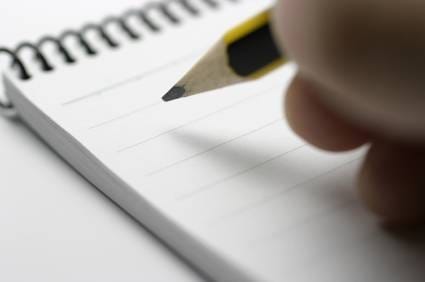
ALAA agent Jacinta di Mase answers some common questions about literary agents.
What does a literary agent do?
A literary agent is a writer’s representative in the commercial world: their manager, their business representative, protector of their copyright, the one who weighs in on the side of the author/illustrator in all dealings.
An agent represents an author/illustrator in all commercial dealings with publishers, film producers, translations rights and other subsidiary rights such as audio, film and television, dramatic, enhanced e-book and interactive digital adaptations of works are also actively pursued by an agent.
An agent is familiar with and keeps abreast of changes in:
- copyright and contract law
- general industry practices and trends
- contractual practices of Australian publishers
- staff in publishing and related industries.
Why should a writer consider taking on an agent?
All creative people have agents – cabaret stars, opera singers, musicians, comedians, radio announcers, film directors, cinematographers, stage and set designers, costume designers, cartoonists… the list is endless – so why would it be otherwise for writers and illustrators?
Now perhaps more than ever a writer or illustrator needs an agent. Publishing is in a constant state of flux with new technologies presenting many radical changes to old publishing models. Editors leave publishing houses; publishing houses are sold, or taken over, or sometimes abandoned. A writer needs a buffer to protect them during times of change. An agent knows the publishing industry and can offer this protection. Other professionals, such as lawyers, can help writers with contracts and legal issues, but an agent is in the industry at the ground level; an agent is there for the writer.
How should a writer approach an agent?
Look up a suitable agent from the list provided here or from the Australian Writers’ Marketplace website and then check their submission guidelines before making contact. If these guidelines are not available on their website, phone or email them according to their stated preference. Some agents prefer you to make a phone call first; others prefer email.
If an agent wants to look at your writing, they will generally ask you to send in an initial submission by email or post, according to their guidelines. They usually do not want to see the whole work at first. [Please note: if sending hard copies, send copies and not the originals. Always keep the originals in a safe place. Agents cannot be responsible for loss of material.]
Also, keep an eye out for writers festivals and other similar events, where agents often have a range of sessions (for instance, I’ll be at the Emerging Writers’ Festival this month). That way, you can hear from an agent first-hand and gain a better understanding of what sort of writers they represent.
ALAA Agents
Australian Literary Management
The Authors’ Agent
Camerons
Curtis Brown
Drummond Agency
Golvan Arts Management
HLA Management
HMMG Pty Ltd
Jacinta di Mase Management
Jenny Darling & Associates
Margaret Connolly & Associates
margaretconnollyagency.wordpress.com
Margaret Kennedy Agency
The Naher Agency
Rick Raftos Management
Jacinta di Mase
Jacinta di Mase is Director of Jacinta di Mase Management and President of the Australian Literary Agents’ Association (ALAA).
Jacinta di Mase Management
jacintadimase.com.au
Australian Literary Agents’ Association:
austlitagentsassoc.com
This article was originally published in The Victorian Writer.
